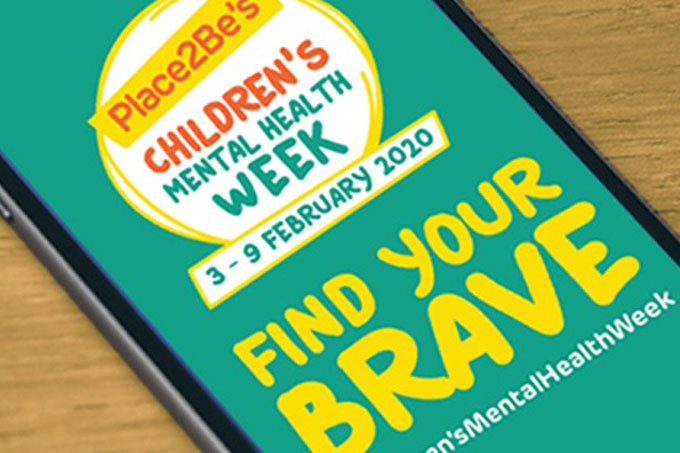Wendy Cobb explains how the Faculty of Education is supporting teachers to support emotional health and wellbeing in the classroom.
The theme for Children’s Mental Health Week 2020 is ‘Find your Brave’.
We often associate bravery with lone acts of courage or stoicism in the face of extreme acts of violence, both physical and emotional. Like for instance the many heroic tales we have heard in recent weeks of the survivors of Auschwitz and of the many more who lost their often very young lives. The words ‘Lonely’ and ‘brave’ often sit alongside each other in great works of historical literature and cinematography .
Place2B, a national children’s mental health charity reminds us that bravery comes in all shapes and sizes and is different for everyone. It is not, however, something that needs to happen alone. ‘Bravery can be about sharing worries and asking for help, trying something new or pushing yourself outside your comfort zone. Finding your Brave can build your confidence, self-esteem and make you feel good about yourself.’
Bravery can be about the little acts we do together that make the world a better place. At the Faculty of Education, those little acts have included an emphasis on sustainability, physical and mental wellbeing and emotional awareness. With the ongoing pressures of accountability within the ever-changing policy context we are constantly uncovering new challenges to the development of positive learning relationships. Yet, slowly and steadily through united acts of bravery we have gathered a network of like-minded people and over several years we have witnessed a significant shift in the dialogue within our teacher education programmes which has begun to position emotional awareness and the development of positive learning relationships more centrally within our courses.
Put simply, what we are talking about is the development of wellbeing though social connectedness, yet sadly some of the current national responses to perceived mental health issues are driving us further apart. We are today in danger of drowning under a plethora of policies and theories that make relatively simple solutions complex, overwhelming and impossibly scary. The media and national policy response to a stated ‘mental health crisis’ has for too long been largely centred on reactive responses. We now have endless examples available to purchase, sign up for or download of mental health assessments, wellbeing toolkits, and even sample school ‘stress policies’ which frankly stress us out.
So, we lose our brave and cry out, ‘It’s too much, I’m just a teacher, I don’t have what it takes to be a superhero!’, although of course we often are heroes in our day-to-day teaching lives. Superhero teachers can change a child or adult’s world through a kind word or a compassionate touch; or by simply listening.
Our charity partners, Family Links Centre for Emotional Health, underpin their nurturing programme with a simple set of constructs and emotional health beliefs that support positive classroom relationships. The constructs are not the complete picture, but they are a good place to start. Let’s not make wellbeing harder than it needs to be.
So, teachers, continue to be brave! But don’t be lone heroes. We all need to connect. After all we are all human, so we all belong.
Wendy Cobb is Senior Lecturer and Emotional Health Project Lead in the Faculty of Education.
 Expert comment
Expert comment Jeanette Earl
Jeanette Earl 3061
3061


